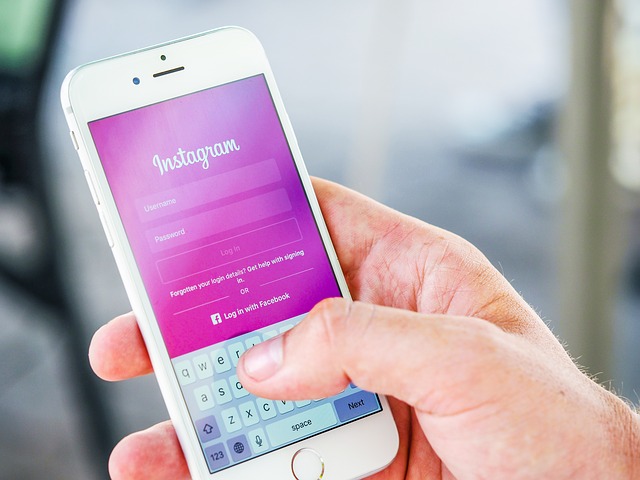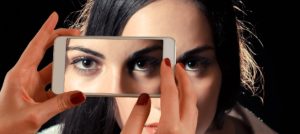- Calls to this hotline are currently being directed to Within Health or Eating Disorder Solutions
- Representatives are standing by 24/7 to help answer your questions
- All calls are confidential and HIPAA compliant
- There is no obligation or cost to call
- Eating Disorder Hope does not receive any commissions or fees dependent upon which provider you select
- Additional treatment providers are located on our directory or samhsa.gov
Instagram & Body Image Dissatisfaction

Contributed by Canopy Cove
Social media is, simultaneously, an incredible gift and a challenging foe. It has changed how we interact with one another, keep in touch with loved ones, how we view the world, and how we view ourselves. That last part is incredibly important as Instagram and body image are discussed.
With social media apps and websites, like Instagram, individuals can carefully curate the image of themselves they want to share with others, posting beautiful, filtered life highlights and leaving out the negativity.
This makes sense, why would we want to share our most vulnerable or painful moments with hundreds of friends, relatives, and acquaintances?
The issue becomes individuals believing that what they see on social media is the only reality, forgetting that photos and moments are curated, edited, and filtered to cut out the bad and only emphasize the positive.
Survey Says…
Reports indicate that increased social networking use, in general, is related to body image dissatisfaction and eating concerns. In regard to Instagram, studies show that this relationship is even stronger with photo-based activity [1].
Research also shows that “exposure to idealized Instagram images (attractive peers, celebrities) has a detrimental impact on body image [1].” It has also been shown to increase negative mood [2].
Social Comparison of Instagram and Body Image
Most clinician and scholars attribute the relationship between increased body dissatisfaction and Instagram exposure to what is known as Social Comparison Theory.
This theory posits that individuals “evaluate their own appearance by comparing themselves with the sociocultural thin ideals of beauty presented in the media [1].”
Not only that, the theory emphasizes that those individuals that are “already anxious or uncertain about their body image seem to be particularly likely to seek out standards for (upward) social comparison [1].”
Translated, those that struggle with body image and self-worth are more likely to seek out pictures of those they believe are better than they are, taking note of where they feel they fall short and creating a vicious cycle of comparison and dissatisfaction with themselves.
To Like or Not to Like
A massive part of Instagram is in the “likes.” Surveys have shown that people view “likes” as “an accepted numerical indicator of consensually determined physical beauty.”
One study found that the number of “likes” on an image, whether “thin-ideal or average,” increased individual’s feelings of “facial dissatisfaction.”
What Now?
You’re probably reading this feeling precisely as I do – conflicted. Social media isn’t going away, and it is difficult to not engage with it these days.
Always remember, you cannot control what others will do, say, or post, but, you can control yourself.

Work against comparison-fueled body dissatisfaction by following real people that post real content, not photoshopped, facetuned, highlight reels portraying impossible-to-achieve “perfection.”
Don’t forget that social media is a highlight reel and that we are never getting the whole picture of someone’s life.
Finally, remind yourself that your life, your soul, your body, and your being are beautiful and worthy because they are unlike anyone else’s.
References:
[1] Tiggemann, M. et al. (2018). The effect of Instagram “likes” on women’s social comparison and body dissatisfaction. Body Image, 26, 90-97. [2] Brown, Z., Tiggemann, M. (2016). Attractive celebrity and peer images on Instagram: Effect on women’s mood and body image. Body Image, 19, 37-43.About Our Sponsor:
Canopy Cove Eating Disorder Treatment Center is a leading residential Eating Disorder Treatment Center with 25 years’ experience treating adults and teens who are seeking lasting recovery from Anorexia, Bulimia, Binge Eating Disorder and other related eating disorders.

Margot Rittenhouse, MS, PLPC, NCC, is a therapist who is passionate about providing mental health support to all in need and has worked with clients with substance abuse issues, eating disorders, domestic violence victims, offenders, and severely mentally ill youth.
As a freelance writer for Eating Disorder Hope and Addiction Hope and a mentor with MentorConnect, Margot is a passionate eating disorder advocate committed to de-stigmatizing these illnesses while showing support for those struggling through mentoring, writing, and volunteering. Margot has a Master of Science in Clinical Mental Health Counseling from Johns Hopkins University.
The opinions and views of our guest contributors are shared to provide a broad perspective of eating disorders. These are not necessarily the views of Eating Disorder Hope but an effort to offer a discussion of various issues by different concerned individuals.
We at Eating Disorder Hope understand that eating disorders result from a combination of environmental and genetic factors. If you or a loved one are suffering from an eating disorder, please know that there is hope for you, and seek immediate professional help.
Published on December 17, 2018.
Reviewed & Approved on April 12, 2024, by Baxter Ekern, MBA
Published on EatingDisorderHope.com
